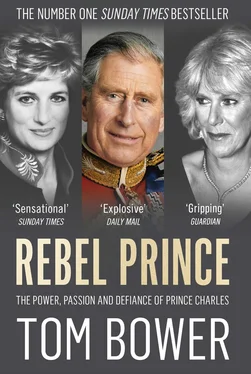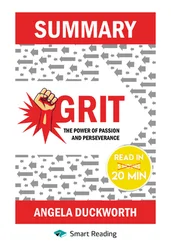Also unmentioned was the uncertainty in Charles’s household. His divorce may have been finalised, but the prospect of his appearing in public with Camilla, let alone marrying her, was inconceivable to those at the meeting. Palace officials spoke only about rehabilitating the prince as fit to marry and as acceptable to be king-in-waiting by the time of the queen’s Golden Jubilee in 2002.
That timetable was unacceptable to Charles. The first obstacle was Aylard. ‘My job in the beginning,’ Bolland recalled, ‘was to remove the antediluvian creatures who fuelled the War of the Waleses. Sour palace courtiers like Aylard and Fellowes, the grey suits who ordered royals to disappear.’
In late September Charles triggered the endgame. Bolland and Stephen Lamport, Aylard’s deputy, were on a recce to Kazakhstan and Ukraine, which Charles was shortly to visit. The two men were drinking warm gin and tonic in a shabby hotel room in Kiev, in Ukraine, when Camilla phoned Bolland. Charles, Bolland knew, was listening in on an extension. Camilla wanted to know whether Lamport would accept Aylard’s job. ‘Yes,’ answered Lamport, ‘but I can’t make it happen.’
Charles summoned Aylard to Lochmore, the Duke of Westminster’s shooting lodge in the north of Scotland. ‘I think it is time for you to go,’ he told his loyal servant. Aylard departed in tears. Lamport would replace him, with Bolland as the new deputy private secretary.
On the instructions of Charles and Camilla, Bolland’s new task was to persuade the queen and her advisers that the heir to the throne’s continuing relationship with Camilla was non-negotiable, and that Charles’s primacy among his siblings should be conspicuously revived. ‘I won’t be trodden down any more,’ Charles declared.
Soon after, Diana called Bolland. Despite his position in the enemy camp, she was easily charmed by him, and he responded in kind to her wiles. Working together, both agreed, was so much easier than fighting. The Camilla campaign, Diana said, was disturbing: ‘I know that as part of the plan she’ll give an interview next week, but if and when she does, I will have to make a statement.’
‘There’s no plan for an interview,’ replied Bolland, aware that Diana’s ability to manipulate the media was legendary.
Her suspicion about the Camilla campaign was shared in Buckingham Palace. For the first five months of Bolland’s job, Robert Fellowes and Charles Anson, the queen’s press secretary, regarded him as benign. While both distrusted the media, they assumed that, given his previous employment at the Press Complaints Commission, Bolland would continue to guard William and Harry’s privacy. Their own priority was to protect the monarchy, not least from Charles heaping greater disrepute upon his own family and endangering his succession. But once both realised that the new man did not share their view of Camilla, Fellowes spoke about destabilising Bolland’s campaign by hiring a private detective to find evidence that he was gay. The plan was ill-conceived. ‘You can just ask him,’ Fiona Shackleton told Fellowes, ‘and he’ll admit it.’
The report to Charles about that conversation inflamed his bitterness towards Buckingham Palace’s officials, particularly Fellowes. His ex-brother-in-law, he knew, wanted to end his relationship with Camilla. In retaliation, Charles ordered Bolland to tell Fellowes and Janvrin that the queen ‘needed to move with the times’. Unsurprisingly, he was ignored. Of the besieged lovers, Fellowes judged: ‘Those two are the most selfish people I have ever met.’
At the end of 1996, a BBC TV programme about the royals and their companions called The Nation Decides echoed this view. In a poll of three thousand people, Charles was voted the most hated royal, just above Camilla. The popular dislike was personal. A further telephone poll in January 1997 found that 66 per cent of Britons supported the monarchy, slightly less than in previous years.
Finding a permanent solution to the conundrum of Charles, Diana and Camilla was the elephant in the room at the 9 a.m. daily meetings in Buckingham Palace, where the private secretaries and other advisers to the royal family met over coffee to discuss events and problems. Once mundane matters had been agreed, the officials forlornly considered the War of the Waleses. Charles, Fellowes suspected, was unwilling to surrender or even compromise. His judgement was right: Charles fought to win, regardless of any collateral damage. Like Fellowes, the influence of the other officials at the meeting was limited. All deferred to the queen. She could have summoned Charles and Diana to order both to cease manipulating the media, or asked Robin Janvrin, trusted by Diana as an honest broker, to mediate a ceasefire. Or she could have issued an ultimatum to Charles to choose between the crown and Camilla. Instead, she ignored the problem.
The queen’s fence-sitting reflected her doubts about Charles’s judgement, and also the erosion of her own self-confidence. Five years earlier, her ‘ annus horribilis ’ speech, written by Robert Fellowes, had revealed how vulnerable she was. Suffering from the divorce of three of her four children and having witnessed Windsor Castle engulfed in flames, she told Britons, ‘No institution – city, monarchy whatever – should expect to be free from the scrutiny of those who give it their loyalty.’ Her honesty had won widespread affection. Nevertheless, as 1997 began, she still felt battered.
‘I cannot believe what’s happened to me,’ she confessed to an adviser after describing the state of her family and her continuing struggle with Charles.
‘It’s common today,’ was the consoling reply.
Philip, her most loyal friend, offered little comfort. He merely encouraged distrust of Charles without making any meaningful suggestions other than to reinforce the queen’s anger towards Camilla.
On Charles’s behalf, Stephen Lamport was in no position to offer a solution. A cautious man seconded from the Foreign Office, he was regarded as indecisive. Cast as middle-class, Lamport knew that his income, home and perks would be terminated at a moment’s notice if the prince were displeased. ‘Stephen,’ a courtier explained to a newly appointed official, ‘hasn’t got much money, so his job is important for him.’ Every obedient courtier, irretrievably bound by Charles’s temperament and outbursts, would search his employer’s face for signs of that hour’s attitude. Charles’s rages or frosty blanking could be calculated to assert his supremacy over every official, or just reflect that moment’s volatility. Lamport was employed to obey if his advice was rejected, not to take responsibility. Loyal to the monarchy, he agreed to be led by his new deputy; after all, Bolland was acting on Charles’s behalf with Camilla’s approval. Whenever Patrick Jephson complained that Bolland was ‘monstering the media’, Lamport would reply: ‘I can find no evidence.’ His sharpest reproach to Bolland was ‘We don’t do that sort of thing.’ Both men understood their terms of employment – with Charles, only unquestioning obedience was acceptable.
Конец ознакомительного фрагмента.
Текст предоставлен ООО «ЛитРес».
Прочитайте эту книгу целиком, купив полную легальную версию на ЛитРес.
Безопасно оплатить книгу можно банковской картой Visa, MasterCard, Maestro, со счета мобильного телефона, с платежного терминала, в салоне МТС или Связной, через PayPal, WebMoney, Яндекс.Деньги, QIWI Кошелек, бонусными картами или другим удобным Вам способом.












